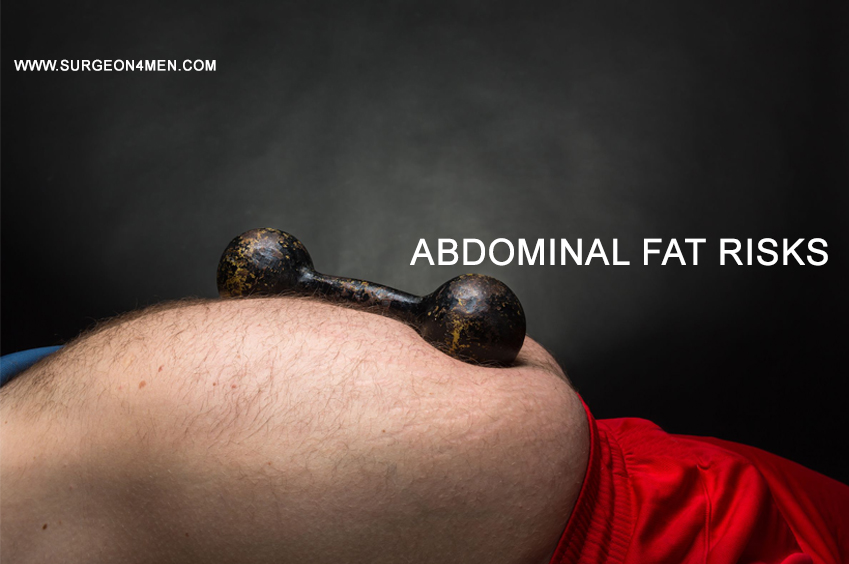Abdominal Fat Risks
There is a nice name given to people with a round belly- Apple shaped. However, there is nothing nice about increased abdominal fat. In fact, one should be wary of it as it is a precursor to many diseases.
Men are more predisposed to collect belly fat and it starts early in the life. In women, it is the menopause that is usually the triggering factor behind increased abdominal fat deposition.
Let us discuss some of the risks associated with increased abdominal fat.
Risks Associated With Increased Abdominal Fat
Abdominal fat can easily break into fatty acids which reach the liver and the muscles. According to Lewis Kuller, professor and past chair of epidemiology at the University of Pittsburgh School of Public Health, when these fatty acids reach the liver, they initiate a set of chain reactions which ultimately lead to increase in the levels of LDL, triglycerides and bad cholesterol.
They also make insulin less effective in controlling the blood sugar levels. As body produces more and more insulin to control blood sugar levels, insulin resistance sets in. Due to insulin resistance, blood sugar level cannot be controlled, paving the way for development of diabetes.
Release of fats and blood clots into the blood vessels may lead to heart diseases. Abdominal fat also alters the level of angiotensin, a hormone which is responsible for the constriction of the blood vessels. This, in turn, increases the risk of increased blood pressure, stroke and heart attack.
In fact, the amount of abdominal fat deposition can be used to assess the risk of developing metabolic syndrome– a congregation of high levels of blood sugar, increased blood pressure, increased levels of triglycerides and reduced levels of high density lipoproteins.
The Risks of Increased Abdominal Fat in Men and Women
Men with a large waist have a higher risk of all cause mortality. Moreover, increase in blood pressure also increases their chances of developing erectile dysfunction.
Women are usually protected from attaining an increased waist size because of estrogen. However, after menopause, as the levels of estrogen fall, the tendency of gaining fat around the waist becomes equal to that in men. And then, women are also prone to suffer from all the bad effects of abdominal fat.
Some of the risks in women with increased abdominal weight are:
- If a woman has increased abdominal fat as well as increased levels of fat in the blood, she is five times more likely to die because of heart disease.
- Such women are twice more likely to develop gall stones.
- Chances of infertility are higher in women with increased abdominal fat.
- Chemicals released by abdominal fat can help in rapid cell proliferation. So, the chances of developing cancer of the breast, uterus, cervix, colon and pancreas are high.
Prevention of Abdominal Fat
Considering all the harmful effects of abdominal fat, it is important that steps are taken to prevent its deposition. Keeping a careful watch on the diet is one step. But the most important factor to help prevent the fat deposition is exercising. Regular exercising for 30 to 45 minutes every day will not only help the abdominal fat to melt away but also prevent its subsequent deposition.
Reference:
“Body Fat Distribution and Risk of Cardiovascular Disease,” by Jean- Pierre Despres. Published in the journal Circulation in 2012, accessed on July 12, 2015. Retrieved from: http://circ.ahajournals.org/content/126/10/1301.full
